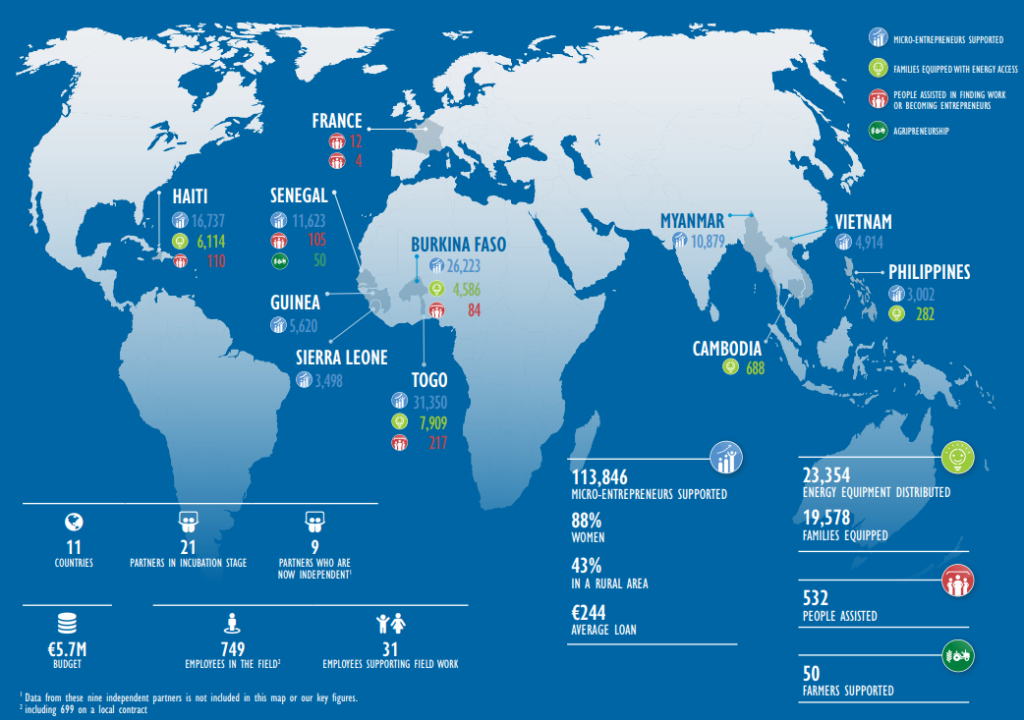The essentials of our action in 2020
Prohibition of meetings, limitation of inter-regional travel, closure of borders and major markets, confinements by neighborhood, curfews…
These Covid restrictions (coupled in Burkina Faso, Haiti and the Philippines with complicated political and security situations) have had a strong impact on the most vulnerable: inflation on consumer goods, limitation of their economic activities, loss of income, postponement of purchases of stoves and solar kits to prioritize food expenditures, etc. We have mobilized to ensure that our support is not interrupted: we have maintained credit disbursements, facilitated savings withdrawals, visited families regularly, and maintained social listening and awareness-raising sessions on the disease by phone to inform and support families. In some countries, we were able to provide free energy and finance hand-washing kits and masks to limit the spread of the virus.
We also continued structuring projects (e.g. improving social services and information management systems) and prepared for developments (e.g. preparing enterprise schools, improving the granary model, opening a program in Ivory Coast, etc.). And in September, we resumed and accelerated our actions almost everywhere!
You have not let us down, thank you very much!

404 K € in donation from individuals
2 053 K € in donation
from companies and corporate foundations
2 692 K € in donation from public entities

